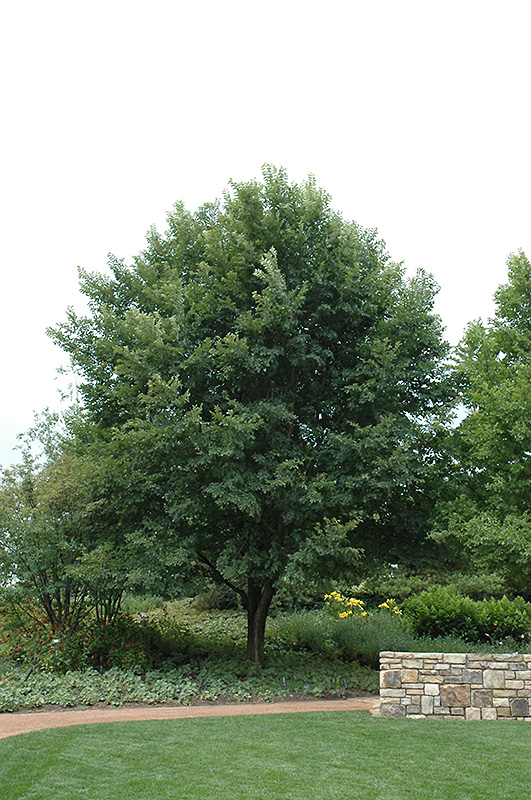Height: 60 feet
Spread: 40 feet
Sunlight:
![]()
Hardiness Zone: 3b
Description:
A large-growing elm introduction from Wisconsin that's highly resistant to the dreaded Dutch Elm Disease; this vigorous shade tree is upright in habit and very tolerant of adverse conditions, retains a dense crown through old age
Ornamental Features
New Horizon Elm has dark green deciduous foliage on a tree with an upright spreading habit of growth. The serrated pointy leaves turn yellow in fall.
Landscape Attributes
New Horizon Elm is a dense deciduous tree with an upright spreading habit of growth. Its average texture blends into the landscape, but can be balanced by one or two finer or coarser trees or shrubs for an effective composition.
This tree will require occasional maintenance and upkeep, and is best pruned in late winter once the threat of extreme cold has passed. Gardeners should be aware of the following characteristic(s) that may warrant special consideration;
- Insects
New Horizon Elm is recommended for the following landscape applications;
- Shade
Planting & Growing
New Horizon Elm will grow to be about 60 feet tall at maturity, with a spread of 40 feet. It has a high canopy with a typical clearance of 7 feet from the ground, and should not be planted underneath power lines. As it matures, the lower branches of this tree can be strategically removed to create a high enough canopy to support unobstructed human traffic underneath. It grows at a fast rate, and under ideal conditions can be expected to live for 90 years or more.
This tree should only be grown in full sunlight. It is very adaptable to both dry and moist locations, and should do just fine under average home landscape conditions. It is considered to be drought-tolerant, and thus makes an ideal choice for xeriscaping or the moisture-conserving landscape. It is not particular as to soil type or pH, and is able to handle environmental salt. It is highly tolerant of urban pollution and will even thrive in inner city environments. This particular variety is an interspecific hybrid.







